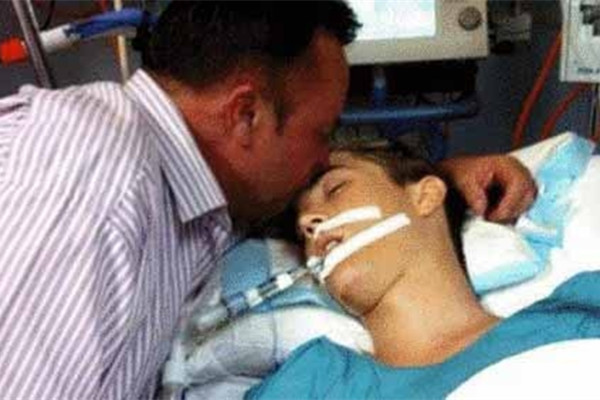 |
|
Rodney Bridge, left, and his son. [Photo/people.com.cn] |
Police in Anhui province are investigating a case involving synthetic drugs after an Australian father went undercover as a buyer to drug dens in Hefei, the provincial capital, and exposed the deal on the Australian edition of 60 Minutes.
Rodney Bridge's undercover trip was aired on Sunday night and drew wide attention. Rodney's 16-year-old son jumped to his death after he took 25I-NBOMe, a chemical originally produced for medical imaging purposes that has also been used as a psychedelic drug.
The chemical, which is now illegal in Australia, was reportedly produced in China, where there is no law against it.
Suspects involved in the video recorded by Rodney are being monitored by police, and the case is under investigation, Song Zhihai, head of the narcotics team at Hefei public security bureau, said on Wednesday.
"I hope the Chinese government would shut down these manufacturers producing and selling those drugs because they are killing people," Rodney said.
"I'd love to have a dialogue with the Chinese authorities about closing these manufacturers," he said.
Bridge, 50, from Perth, took action after his son Preston died in February 2013 after taking one tablet of 25I-NBOMe, which is similar to LSD.
25I-NBOMe is a white powder that can cause fast heartbeat, hypertension, fidgetiness, aggressiveness, hallucinations and spasms.
Preston fell from the balcony of a hotel because of hallucinations. Since then, the father, previously a successful businessman and restaurateur, devoted his life to fighting drugs.
He discovered that the drug that killed his son was from China, and went on the trip with an Australian reporter from 60 Minutes.
Bridge disguised himself as a buyer, wearing listening devices and hidden cameras, and went to the manufacturers.
"I was extremely nervous when I met the drug bosses," he said. "But I was on a mission to expose these drug dens."
In the 60 Minutes investigation broadcast on Sunday night, it was found that at least five different types of synthetic drugs could be imported into Australia.
"I did not report it to local police in China since these manufacturers were legal in China," Bridge said. He reported it to Australian police and was told that the case was under investigation.
The synthetic chemical is not categorized as illegal and can be sold in the global drug market, Song said.
Because these chemicals are not illegal, police are not able to take direct action, said Yin Weidong, a spokesman for Hefei police.
They can only seek other leads, including checking trade records of people involved in the case and hoping to find evidence of illegal behavior. Police are consulting with customs and medicine inspection departments for more information, Yin said.
Contact the writers at [email protected]
Ma Chenguang and Wang Xiaodong contributed to this story.
